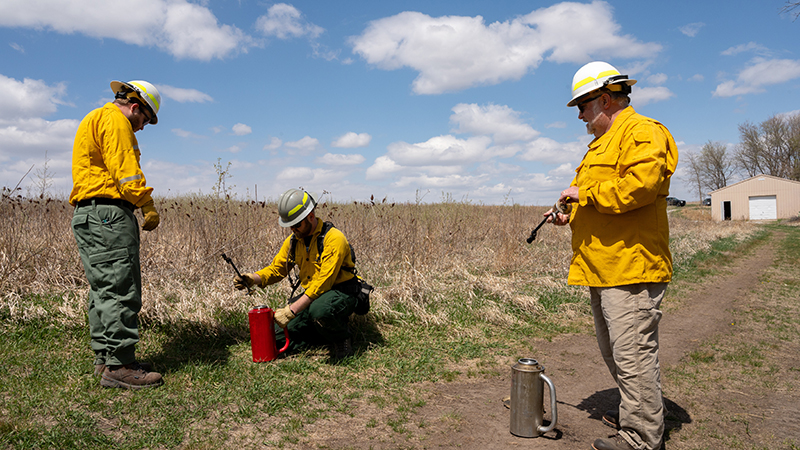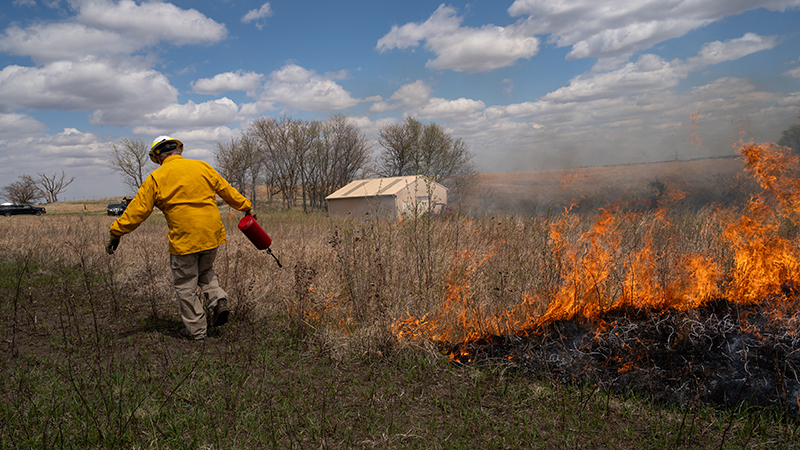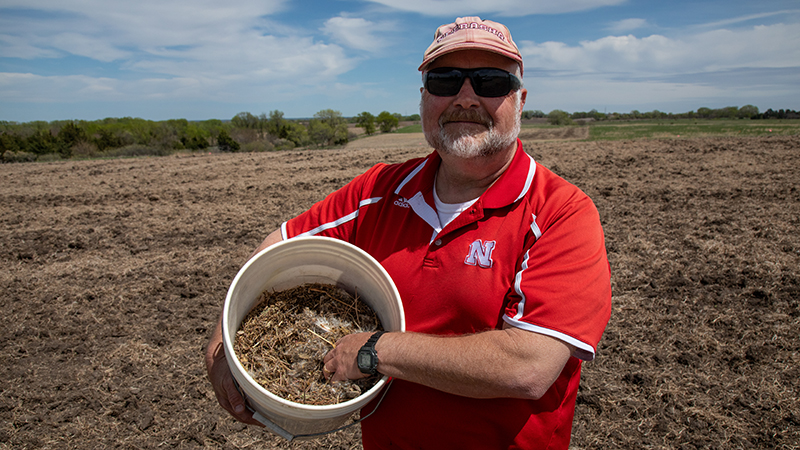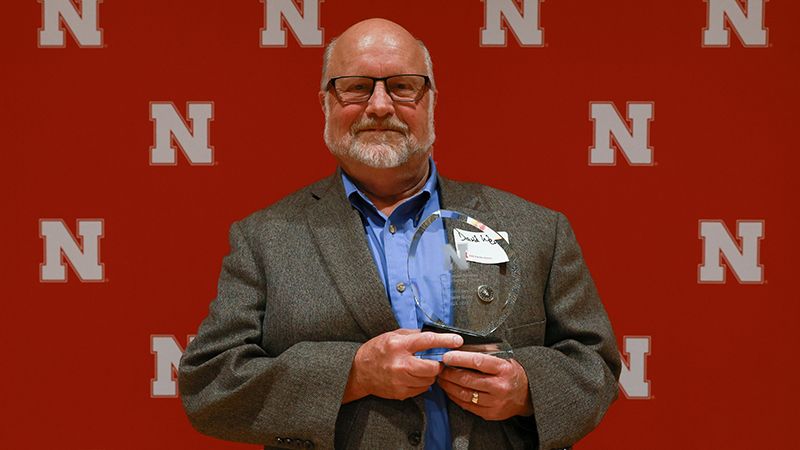Posted: 8/18/2025
Wedin wins SNR award for extended service

By Ronica Stromberg
David Wedin recently received the 2025 Extended Service Faculty Award in the School of Natural Resources, capping 27 years of work there and three in the Center for Grassland Studies.
The director of the Center for Grassland Studies, Wedin is also a professor in the School of Natural Resources and a courtesy professor in the Department of Agronomy and Horticulture and in the School of Biological Sciences. He has taught and done research in ecology, conservation, forestry and grasslands. He has also managed about 900 acres of university land but, recently, cut back to working a 75-percent appointment in preparation of retiring in 2026.
"It will be interesting to see who takes over my responsibilities," he said. "There's still a big chunk of time left this year, but I had my fingers in a lot of different things."
Larkin Powell, director of the School of Natural Resources, noted that the ecology professor helped transform the school's ecology, grassland and forestry courses. Wedin has taught foundational concepts and given students hands-on experiences in work such as restoring prairies and carrying out prescribed fires. He used to take students on canoe trips to Northern Minnesota and, during the COVID pandemic, shared the outside world with his students through videos of prairies and forests and Zoom discussions with international colleagues.
Powell said Wedin has 14 published papers that have been cited more than 500 times and five papers cited more than 1,000 times.
Wedin agreed that his papers and experiments with other scientists have had impact.
"I was a co-author on seven papers in Science, Nature and the Proceedings of the National Academy of Sciences," he said. "A lot of people in their career are happy to have one or two in there."
Still, he said that what he finds most rewarding from his career are the people he has had an impact on.
"One of the most rewarding things is to go any place where professionals or others working with natural resources and agriculture in Nebraska are and hear, 'Oh, I had you in class,'" Wedin said.
That recognition from locals has helped him on many projects, as in a recent request for a burn permit. The local fire chief recognized him from class decades before and smoothed the process. Wedin said he remembers such professionals being young but now they're leading divisions of important agencies.
"It's just amazing to see them mature and become professionals," he said. "So, that's the reward, more than the scientific papers. The scientific papers don't have that much legacy sometimes. They get forgotten."
He led big federal grants in the Sandhills in the 2000s, he said, but has transitioned in the past 15 years more toward teaching and taking care of university land. He uses the land to demonstrate to students how to maintain or restore habitat for conservation and train students in tools like prescribed fire. Small plots at Nine-Mile Prairie outside Lincoln serve well for beginner burns, he said.

"Students need that first experience," he said. "They get the smoke in their nostrils, and they start to see how this works, and this is exciting, but they can also see the benefits of it."
In the past five years, he has also led an effort to restore part of the north lawn of Hardin Hall to prairie. Students learn from the restoration about the importance of diversity, heterogeneity and herbivores to prairies.

He worked with the Department of Animal Science to bring cattle over to graze the fledgling prairie, teaching students more about how prairies and grasslands in Nebraska work.
"Even if you are interested in grasslands because of wildlife, endangered species, rare plants and pollinators, you need to understand cattle and grazing because 95% of our grasslands are private land," he said. "These are working grasslands, and they're gorgeous."
Most of his research has focused on grasslands and the feedbacks between grassland plants and soil and their interactions with fire, drought, grazing and pollution.
He grew up in Iowa, with both parents serving as professors at Iowa State University. He earned his undergraduate degree from St. Olaf College in Minnesota and doctorate from the University of Minnesota. He taught at the University of Toronto and worked at The Nature Conservancy before coming to the University of Nebraska-Lincoln in 1998. He said he has no plans to move from Nebraska in retirement.
The Extended Service Faculty Award was his first award from the School of Natural Resources but he has previously received other awards from the University of Nebraska–Lincoln. This latest award pleased him, he said, as he comes to the close of his university career.
"My peers for 27 years have been here in the School of Natural Resources, so it feels good," he said. "I knew I was appreciated by my peers, but it's nice to have that recognized.”
